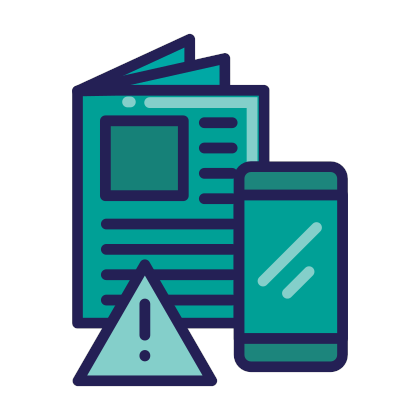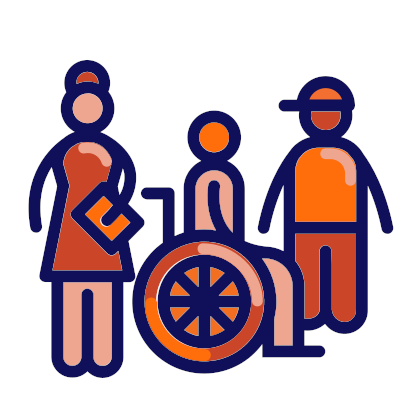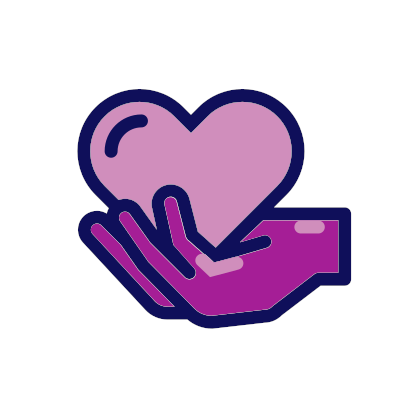Addressing controversial issues

However, being able to discuss sensitive and controversial issues in a respectful way is a vital skill in a democratic culture.
Schools must be places where students feel safe to engage in debates with people who have different opinions. Through the careful management of discussions on controversial issues, schools can promote freedom of expression, as well as inclusion, tolerance, and human rights and prevent, or counter, the use of hate speech by students.
To achieve this, a school action plan on managing controversial issues – which provides staff training – should be adopted as a priority.
Facts & Figures
71% of teachers and school leaders surveyed agreed that it is very important that all students in their school express their views openly, even when their views might be controversial.[1]
In response to the question, ‘How valuable is the study of the Holocaust for primary children?’ 88% of teachers viewed Holocaust teaching to be either ‘worthwhile’ or ‘very valuable’ to the primary pupil, although only 48% had actually taught it.[2]
What are controversial issues?
Controversial issues are issues which arouse strong feelings and divide communities.
Issues like these can arise anywhere at any time. They vary from the local to the global – from minarets to climate change. They also vary from place to place, e.g., gay marriage is relatively uncontentious in some countries, but highly controversial in others. Some are long-standing controversies, e.g., the ‘Troubles’ in Northern Ireland, the Israel-Palestine conflict and the ‘Kurdish issue’ in Turkey; while others are more recent, e.g., refugees, violent extremism and transgender issues.
What all these issues have in common is that they are complex, not easily settled by appeal to evidence alone and highly emotive – so much so that people often have difficulty discussing them rationally.
Why is it important to address controversial issues at school?
While it might be tempting for schools to try to shy away from issues like these, this is neither beneficial nor practical.
Discussing controversial issues helps students with different backgrounds and lifestyles to learn to live and work together peacefully and respectfully. It encourages them to listen to each other and talk through their differences sensitively. It also challenges them to think critically about their own beliefs and values and gives them confidence and skills to express these publicly.
Talking through difficult issues together develops a number of important democratic competences, e.g., openness to other cultures and beliefs, analytical and critical thinking skills, flexibility and adaptability, and tolerance of ambiguity - all of which lie at the heart of the Council of Europe Reference Framework of Competences for Democratic Culture.
Handled well, it breaks down barriers and helps to defuse social tension between opposing groups, both in school and the wider community.
Exploring controversial issues has educational as well as personal and social benefits. Issues like these help to define some of the major social, political, economic and moral fault-lines in contemporary life and underpin academic learning in many school subjects.
The strongest argument for addressing controversial issues explicitly, however, is that, in practice, they simply cannot be avoided. If teachers do not raise these issues, their students will.
Through training in the teaching of controversial issues, I have found the courage to discuss openly with my students issues I thought I would never be able to do, e.g., about sexual abuse and the porn industry.” Teacher, Iceland
What are the challenges?
The biggest challenge is creating a school ethos in which students genuinely feel they can speak openly about their concerns without fear of vilification or ridicule.
Creating such an ethos requires a whole-school approach. It includes among other things:
- teachers having the confidence and skills to handle discussion of difficult issues in the classroom, e.g., knowing how to deal with their own prejudices and biases, protect vulnerable individuals and marginalised groups, present issues even-handedly, cope with a lack of expert knowledge, and handle spontaneous or unexpected questions and remarks constructively;
- school leaders encouraging their staff to take on issues which are controversial and maintaining a consistency of approach across the school, e.g., by providing leadership, professional development, opportunities for team teaching, guidance and support, and risk management;
- parents and local communities feeling assured that the school is on their side, e.g., being confident the school will not misrepresent or try to undermine their views or culture.
How can schools get active?
A good way for schools to begin is by:
- identifying where controversial issues already feature in the school curriculum and discussing how these are currently handled, e.g., evolution, climate change or animal testing in Science;
- considering new opportunities for introducing controversial issues into other school subjects and how they might be incorporated into teaching, e.g., the use and abuse of social statistics in Maths;
- developing ground rules for classroom discussion which guarantee everyone a voice to express their opinion and encourage respect for whoever wishes to speak;
- creating a small support group to help teachers develop techniques for managing discussion of difficult issues, e.g., how to ‘de-personalise’ an issue by using a story or historical parallel, or helping students to consider alternative perspectives by putting them in other people’s shoes;
- liaising with students and parents to ensure specific issues are handled fairly and with appropriate methods;
- introducing more opportunities for discussion in school life and decision-making generally, e.g., in parents’ meetings, staff meetings and pupil parliaments.
[1] ‘Free to speak, Safe to learn – Democratic schools for all’ Survey, First Trends, 2018
[2] Cowan & Maitles, ‘Feature or Footnote? Teachers’ attitudes towards the teaching of the Holocaust in primary schools in Scotland’.
 Resources on Addressing Controversial Issues
Resources on Addressing Controversial Issues
Multimedia
- Crossroads of European Histories - Multiple Outlooks on Five Key Moments in the History of Europe (CD + Book) (2009)
- Education for Democracy and Human Rights in 10 Steps (2017)
- How can schools support students to be active citizens?
- Living in harmony together: the role of schools? (2014)
- Re-Thinking Education Policy For The 21st Century (2014) (Jón Torfi Jónasson)
- Shared histories for a Europe without dividing lines (2014)
- Through the Wild Web Woods – An online Internet safety game for children - Teachers guide (2013)
- What is the Charter on citizenship and human rights education?
Official texts
- Comparative study on blocking, filtering and take-down of illegal internet content (2017)
- Education for change - Change for education
- Eradicating violence against children - Council of Europe actions (2008)
- ETINED - Volume 1: 7th Session of the Prague Forum (2016)
- Freedom(s) - Learning activities for secondary schools on the case law of the European Court of Human Rights (2015)
- Global Education Guidelines. A Handbook for Educators to Understand and implement Global Education (2012)
- Guidelines for educators on combating intolerance and discrimination against Muslims – Addressing Islamophobia through Education (2011)
- Human Rights and Democracy Start with Us - Charter for All: Brochure for children, Guide for educators and a Poster (2014)
- Report of the Intergovernmental Policy Forum: The right of learners to quality and equity in education – the role of language and intercultural skills (2010)
- The Lisbon Recognition Convention at 15: making faire recognition a reality (Council of Europe higher education series No. 19) (2014)
- Thematic factsheets highlighting the European Court of Human Rights relevant case-law on issues relating to media freedom
- What is the Charter on citizenship and human rights education?
Policy documents
- Addressing violence in schools (2016)
- Bullying: Perspectives, Practices and Insights (2017)
- Comparative study on blocking, filtering and take-down of illegal internet content (2017)
- Compasito - manual on human rights education for children (2000)
- Compass - manual for human rights education with young people online resource (2002)
- Competences for democratic culture - Living together as equals in culturally diverse democratic societies (2016) A conceptual model of competences
- Curriculum Development and Review for Democratic Citizenship and Human Rights Education (2015)
- Developing attitudes to recognition: substantial differences in an age of globalisation (Council of Europe higher education series No. 13) (2010)
- Digital citizenship education - Volume 1: Overview and new perspective. Supporting children and young people to participate safely, effectively, critically and responsibly in a world filled with social media and digital technologies. (2017)
- Digital Citizenship Education (DCE) - 10 Domains leaflet
- Education for change - Change for education
- Education for Democracy and Human Rights in 10 Steps (2017)
- Education for democratic citizenship: policies and regulatory frameworks (2003)
- Equal opportunities for all children: Non-discrimination of lesbian, gay, bisexual, transgender and intersex (LGBTI) children and young people (2016)
- Eradicating violence against children - Council of Europe actions (2008)
- ETINED - Volume 1: 7th Session of the Prague Forum (2016)
- ETINED - Volume 2: Ethical principles (2016)
- ETINED - Volume 4: Codes of conduct for teachers in Europe: A background study (2017)
- ETINED - Volume 5: South-East European Project on Policies for Academic Integrity (2018)
- Freedom(s) - Learning activities for secondary schools on the case law of the European Court of Human Rights (2015)
- From linguistic diversity to Plurilingual education: Guide for the development of language education policies in Europe (2007)
- Gender Matters. A manual on addressing gender-based violence affecting young people 2007 (reprint 2013)
- Global Education Guidelines. A Handbook for Educators to Understand and implement Global Education (2012)
- Guide for the development and implementation of curricula for Plurilingual and intercultural education (2016)
- Guidelines for educators on combating intolerance and discrimination against Muslims – Addressing Islamophobia through Education (2011)
- Higher Education and Democratic Culture: Citizenship, Human Rights and Civic Responsibility (Council of Europe higher education series No. 8) (2008)
- History education in Europe. Ten years of co-operation between the Russian Federation and the Council of Europe (2006)
- Human Rights and Democracy in Action Pilot Projects Scheme (2013-2014)
- Intercultural dialogue on Campus (Council of Europe higher education series No. 11) (2009)
- Language support for adult refugees: a Council of Europe toolkit (2017)
- Learning to live together. Council of Europe report on the state of citizenship and human rights education in Europe (2017)
- Living with Controversy - Teaching Controversial Issues Through Education for Democratic Citizenship and Human Rights (EDC/HRE) (2016)
- Managing controversy (2017). A self-reflection tool for school leaders and senior managers
- Multicultural Societies, Pluricultural People and the Project of Intercultural Education (2009)
- Open minds, free minds - No easy prey for counterfeit medicines and similarly dangerous medicines - Psycho-pedagogical concept guide for teachers (2015)
- Plurilingual and intercultural competence (2009)
- Plurilingual and intercultural education as a project (2009)
- Plurilingual and intercultural education as a right (2009)
- Quality history education in the 21st century. Principles and guidelines (2018)
- Re-Thinking Education Policy For The 21st Century (2014) (Jón Torfi Jónasson)
- Reference Framework of Competences for Democratic Culture Volume 1: Context, concepts and model (2018)
- Reference Framework of Competences for Democratic Culture Volume 2: Descriptors (2018)
- Reference Framework of Competences for Democratic Culture Volume 3: Guidance for implementation (2018)
- Report of the Intergovernmental Policy Forum: The right of learners to quality and equity in education – the role of language and intercultural skills (2010)
- Speaking across borders: the role of higher education in furthering intercultural dialogue (Council of Europe higher education series No. 16) (2010)
- Specifying languages’ contribution to intercultural education. Lessons learned from the CEFR (2013)
- Strategic support for decision makers - Policy tool for education for democratic citizenship and human rights (2010)
- Students as suspects? - The challenges of counter-radicalisation policies in education in the Council of Europe member states (2018)
- The linguistic integration of adult migrants: from one country to another, from one language to another (2014)
- The Lisbon Recognition Convention at 15: making faire recognition a reality (Council of Europe higher education series No. 19) (2014)
- The public responsibility for higher education and research. (Council of Europe higher education series No. 2) (2005)
- The university as res publica - Higher education governance, student participation and the university as a site of citizenship (Council of Europe higher education series No. 1) (2004)
- Thematic factsheets highlighting the European Court of Human Rights relevant case-law on issues relating to media freedom
- Volume 3 - Ethical behaviour of all actors in education
- What is citizenship and human rights education? (2015) Leaflet
 Related schools projects
Related schools projects
Address: Raumantie 4, 00350 Helsinki
Country: Finland
Project: Finland’s precidency of the Council of Europe – Young people discuss with the experts
 Working language during the project:
Working language during the project:
- Finnish
 Themes of the Council of Europe project “FREE to SPEAK, SAFE to LEARN - Democratic Schools for All” covered:
Themes of the Council of Europe project “FREE to SPEAK, SAFE to LEARN - Democratic Schools for All” covered:
- Making children’s and students’ voices heard
- Addressing controversial issues
- Dealing with propaganda, misinformation and fake news
- Tackling discrimination
- Improving well-being at school
 Competences from the Reference Framework of Competences for Democratic Culture (CDC) addressed and where / how they were integrated:
Competences from the Reference Framework of Competences for Democratic Culture (CDC) addressed and where / how they were integrated:
- Knowledge and critical understanding of the world: politics, law, human rights, culture, cultures, religions, history, media, economies, environment, sustainability
Students choose the main topics in the framework of EU-politics, look for experts and create the questions they want to ask from them - Valuing democracy, justice, fairness, equality and the rule of law
Creating better understanding of EU and the political process - Civic-mindedness
The discussions are done in front of a live audience and also in co-operation with a radio station, so many people can benefit from the new knowledge
 Target group age range:
Target group age range:
- 15 - 19
 Level of education:
Level of education:
- Upper secondary education
Short description of the project:
Finland’s presidency of the Council of Europe – Young people discuss with the experts.
High school students interview experts on live radio shows produced in co-operation with a local radio station, Lähiradio. The radio programmes are also recorded, and it is possible to use them for example for educational purposes later. The programme is recorded in front of a live audience in 4 different non-profit locations in Helsinki, and the sessions are open for students from other schools and other people. The 4 locations were very open to our idea and provided the space for us – Helsinki Central Library, European Parliament’s Information Centre, local service centre for older people and our own school. We were able to reach our live audience across the age gaps, from school children to pensioners, and create conversation between different groups of people.
The project started with a good plan: we discussed the unanswered questions our students had. From those we chose the main topics:
- How to take part in EU politics – national and personal impact, 9.10.2019, recorded in a Europe information centre
- True or false - disinformation, fact checking and the EU, 21.10.2019, recorded in a Central library Oodi
- Your future in the EU – studying and working in the EU, 28.10.2019, recorded in the French-Finnish school
- Safety, immigration and human rights inside the EU and the global world surrounding it, 22.11.2019, recorded in Munkkivuori service centre
After planning the topics and finding the venues, we had to look for the experts who could answer our questions. We used many sources: teachers, parents, even people we had seen in the news. The students were happily surprised how easy it was to contact people from different fields of expertise and how accommodating they were towards our programme – thus closing the gap between youth and professionals.
The experts invited represented the Finnish Government, the European Parliament, Academia and Finnish media.
Actual shows were recorded by the professionals from the radio station. We learned interview technique, how to create a good flowing radio interview and spent a lot of time drawing up the final questions. Despite all the practice, we were quite nervous before the first programme. However, the show was a huge success, as was the rest of the series.
 Aims/objectives
Aims/objectives
- Learn about media and how to be actively part of media
- Find information about European Union, Europe and the future possibilities for young people
- Learn how to reach out to experts and discuss with them
- Active citizenship
 Expected results/outcomes
Expected results/outcomes
The participants will learn more about EU and Europe, but also about media and how to interview people. The listeners are hopefully inspired by their activity. They also get have access to new information.
We already have an interesting outcome. A group of students involved in this project have started their own radio programme at a local station.
 Changes
Changes
 Challenges you faced
Challenges you faced
Scheduling has been challenging, since the school days are very full. Learning interview techniques suitable for radio was something completely new for us.
 Time-frame of the project:
Time-frame of the project:
September-November 2019







